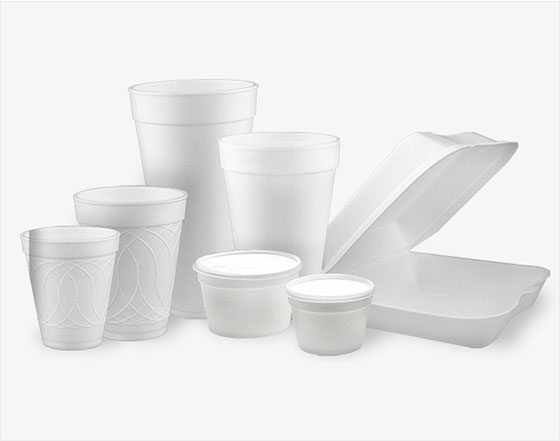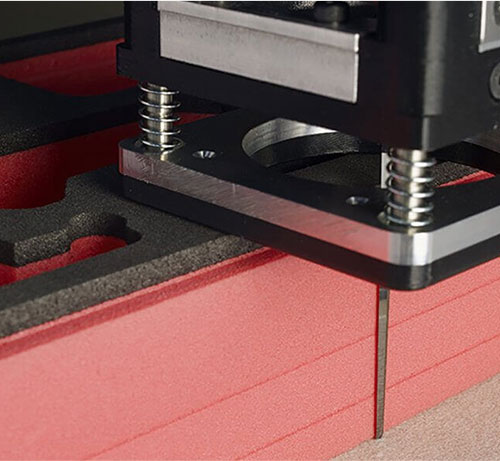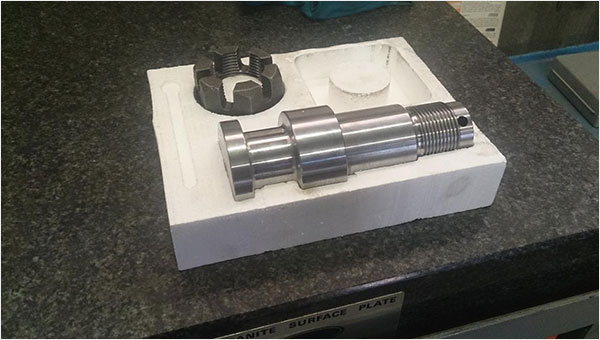High-Precision CNC Machining Polystyrene (PS) – Custom Polystyrene & Foma Parts Manufacturer in China
Looking for precision CNC machining of polystyrene at budget cost? At CNClathing.com, we specialize in precision CNC cutting/milling services for polystyrene (PS plastic), delivering custom-made PS parts and components with tight tolerances and superior surface finishes. Whether you need functional prototypes, small-batch runs, or mass production, our advanced CNC technology ensures you receive quality polystyrene machined parts exactly to your specifications.
What is Polystyrene (PS Plastic)?
Polystyrene in short PS, is a transparent thermoplastic material that is available in the form of solid and rigid foam, and a synthetic aromatic hydrocarbon polymer made from the monomer. It has a glass transition temperature higher than 100 ℃, so it is often used to make all kinds of disposable containers that need to take the temperature of boiling water. Polystyrene is a widely used plastic because of its rich source of raw materials, simple polymerization process, and excellent polymer properties. PS plastic materials can be made into sheets, rods, and stock in other shapes making them suitable for subtractive machining or CNC machining process. Machined polystyrene parts can be added in a wide range of colors.
Key Properties of Polystyrene:
- Lightweight and rigid
- Excellent electrical insulation
- Good chemical resistance
- Low moisture absorption
- Cost-effective and easy to machine
- Available in multiple forms: sheet, rod, block, and foam

Common Types of Polystyrene Plastic for CNC Machining
✅ GPPS
Colorless, non-toxic, and odorless amorphous transparent thermoplastic, with good surface hardness and stiffness, good dimensional stability, but low brittleness, impact strength, and poor wear resistance. Excellent electrical properties, good coloring and radiation resistance, poor sunlight resistance, very low water absorption, cold water resistance, acid and alkali resistance, and other media. It can be used as decoration and signboard in light industry, optical instrument parts, instrument shell, instrument indicator lamp cover and transparent model in the instrument, the high-frequency capacitor in electronic industry, automobile lamp cover in machinery and chemical industry, and a series of daily commodities such as toothbrush handle and bottle cap in daily necessities.
✅ HIPS
The milky white opaque amorphous polymer has lower tensile strength, hardness, light resistance, and stability than general-purpose polystyrene, but its toughness and impact strength is more than 7 times higher than general-purpose polystyrene and has good coloring, electrical insulation, and chemical stability. It can be used to make various electrical and instrument parts, TV sets, radios, tape recorders, telephones, small equipment covers, refrigerator linings, washing machine barrels, furniture, cultural and educational supplies.
✅ EPS
EPS features white or colorless transparent particles, which can be colored arbitrarily and have good chemical resistance. They are impregnated with a low boiling point hydrocarbon foaming agent. It has the characteristics of lightweight, low thermal conductivity, low water absorption, and good sound insulation, and has certain mechanical strength and impact resistance.
Why Choose CNC Machining for Polystyrene?
CNC machining polystyrene offers distinct advantages over traditional processing methods:
- No mold cost: Ideal for prototypes and low-volume production
- Tight tolerances: Achievable down to ±0.02mm for intricate designs
- Complex geometries: Supports undercuts, thin walls, and internal features
- Superior finishes: Smooth, clean surfaces without mold parting lines or 3D print layers
- Design flexibility: Easy iterative changes without tooling adjustment


Applications of CNC Machined Polystyrene Parts
Polystyrene’s combination of affordability, machinability, and performance makes it popular in a wide range of industries:
- Electronics: Insulation components, housings, switch covers
- Packaging: Custom foam inserts, protective packaging, cushioning
- Automotive: Prototype panels, lightweight mock-ups, trim parts
- Medical: Laboratory equipment, sample containers, medical device prototypes
- Displays & Signage: Transparent panels, 3D letters, exhibition props
- Education & Design: Architectural models, teaching aids, project prototypes
- Consumer Goods: Toys, appliance components, sporting goods
CNC Cutting Polystyrene
CNC cutting of polystyrene (PS) is a precision subtractive manufacturing process that uses computer-controlled tools to accurately cut PS materials into desired shapes and sizes. Whether working with rigid polystyrene sheets, rods, or foam blocks (including EPS and XPS), CNC cutting allows for the rapid production of both prototypes and large-batch parts with tight tolerances and complex geometries.
Why CNC Cutting for Polystyrene?
Polystyrene’s properties—lightweight, dimensional stability, and machinability—make it ideal for CNC cutting. The process is highly adaptable, enabling engineers to easily modify designs without costly tooling changes. CNC cutting polystyrene is mold-free, making it particularly cost-effective for low-volume production and design iterations.
Applications
CNC cut polystyrene parts are widely used in:
- Packaging (custom foam inserts, protective packaging)
- Display & signage (3D letters, transparent panels)
- Prototyping (architectural models, educational aids)
- Consumer products (toys, appliance interiors)
- Automotive and electronics (housing, insulation components)
Advantages
- No tool or mold costs: Ideal for prototypes and custom jobs.
- High precision: Achieves clean edges, smooth surfaces, and intricate details.
- Material efficiency: Reduces waste and production costs.
- Versatility: Cuts both solid (GPPS, HIPS) and foam (EPS/XPS) polystyrene.
Process Details
CNC cutting machines use router bits or specialized end mills to follow programmed toolpaths based on CAD data. The computer-controlled motion ensures repeatability, exact dimensions, and minimal material deformation. Advanced CNC routers can handle large sheets or blocks of polystyrene, cutting through thick material quickly while maintaining accuracy.
Surface Finishing
After CNC cutting, polystyrene parts may be sanded, coated, or painted for improved appearance and performance. Vapor polishing can also be used for optical clarity in clear GPPS parts.
CNC Drilling Polystyrene
CNC drilling of polystyrene uses computer-controlled drill bits to create precise holes and cylindrical features in PS materials. This process is essential for producing parts that require mounting points, fastener holes, or internal cavities, and can be performed on both solid and foam grades of polystyrene.
Why CNC Drilling for Polystyrene?
CNC drilling delivers unmatched accuracy and repeatability for hole placement, size, and depth. Polystyrene’s machinability ensures that holes are clean and free from burrs, even at small diameters. Unlike manual drilling, CNC methods can execute complex drilling patterns and multiple hole sizes in a single setup.
Applications
Polystyrene parts manufactured with CNC drilling are commonly used in:
- Electronics (mounting holes for PCBs, cable management)
- Displays (fixture holes, mounting points)
- Automotive (fastener holes in interior panels, prototypes)
- Medical devices (sample containers, diagnostic housings)
- Construction (anchor holes in architectural models)
Advantages
- Tight tolerances: Achievable down to ±0.02mm for hole diameters and placement.
- Consistent quality: Every drilled hole matches the digital design, eliminating variation.
- Flexibility: Supports a range of hole diameters and depths, including countersinking and counterboring.
- Speed: Rapid cycle times for both single parts and batch production.
Process Details
CNC drilling begins with a digital design (CAD) specifying the exact locations and sizes of holes. The CNC machine automatically selects the appropriate drill bit, positions the polystyrene workpiece, and controls the feed rate and spindle speed to optimize results. For foam polystyrene, special attention is paid to minimize heat buildup and material distortion.
Surface Finishing
Drilled holes in polystyrene may be deburred, polished, or coated as required. For critical applications, post-process inspection ensures hole quality and dimensional accuracy.
Polystyrene (PS) CNC Machining Services – Polystyrene Machined Parts Manufacturer and Supplier
To provide the most demanding CNC services to customers, we engaged in metal and plastic machining with a diversity of materials. With talented engineers and skilled technicians, CNC Polystyrene machining services at Junying will produce any Polystyrene structures with high accuracy and efficiency. Using the leading fabrication technologies and software and latest CNC equipment, a wide selection of sizes, quantities, and geometries is available here. We are in the ability to machine or cut PS plastic with proper process and ensure the machined polystyrene parts meet your custom requirements. Our work is completely based on your digital file to eliminate machining errors. You can upload your CAD file to get a fast and free online quote, we’ll keep track of all the details and get your design to processing in a short time.
Why Choose CNClathing.com for Polystyrene CNC Machining?
- ISO 9001:2015 Certified: Strict quality management for every order
- No minimum order quantity: Prototype to production flexibility
- Quick turnaround: Fast quotes and worldwide shipping
- Material traceability: Mill certificates supplied on request
- Expert support: Engineering advice for design, material selection, and manufacturability
Our CNC Machining Capabilities for Polystyrene
- Processes:CNC milling, CNC cutting, CNC turning, routing, drilling, engraving
- Tolerance: Up to ±0.02mm
- Max Part Size: 700mm x 500mm x 200mm
- Min Feature Size: 0.8mm
- Lead Time: 3-7 days (expedited service available)
- Surface Finishes: As-machined, polishing, painting, printing, vapor smoothing
Our shop utilizes 5-axis CNC machining centers and high-speed routers designed for plastics, ensuring precise, repeatable results with minimal tool wear.
Our Polystyrene Grades for CNC Machining
| Grade | Features | Typical Applications |
|---|---|---|
| GPPS | Transparent, rigid, brittle | Food containers, clear boxes, models |
| HIPS | Opaque, impact resistant | Appliance housings, toys, panels |
| EPS/XPS | Lightweight foam, insulative | Packaging, insulation, foam prototypes |
| Fire Retardant | Flame resistance | Electronics, TV cases, safety devices |
| Glass Filled | High strength | Gears , structural parts, precision tools |
Our Surface Finishing Options for CNC Polystyrene Parts
Enhance performance and appearance with a range of finishing options:
- As-machined (standard smooth finish)
- Polishing for optical clarity (GPPS)
- Painting or powder coating
- Custom surface printing or labeling
- Textured or matte finishes
- Hard coatings for durability

